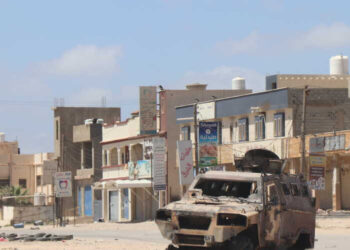Human Lives Human Rights: An average of 84 civilians have been killed every day in direct connection to the war in Syria over the past ten years.
By 2022, an estimated 306,887 civilians had been killed since the armed conflict began in the country. These staggering numbers reveal the brutal impact of the conflict on the lives of civilians.
In the ten years of the conflict in the Syrian Arab Republic, the rights organizations worked with several civil society organizations on the ground, in carrying out this grueling work of documenting and reporting on deaths of civilians during active hostilities.
One of these organizations is the Syrian Network for Human Rights (SNHR). It operates in dangerous environments, sometimes at personal risk to its members.
“We monitored on a daily basis many areas and residential neighborhoods that were stormed by the parties to the conflict or were bombed, and we faced enormous security challenges having lost colleagues who were killed or arrested,” said Fadel Abdul Ghany, Founder and Executive Director of SNHR.
The Syrian Observatory for Human Rights (SOHR) faces a similar challenging reality.
“It is not easy for any organization to work under such dangerous and difficult circumstances and obstacles hindering the documentation and monitoring activities,” said Rami Abdurrahman, Founder and Director of SOHR. “However, we cooperate with each other in order to improve the future of Syrian people who have been grappling with destruction and hunger for years.”
From the total estimate of 306,887 civilians killed between 1 March 2011 and 31 March 2021 in Syria due to the conflict, more than half of those deaths, or 163,537, were never documented by any group. This is significant because these results have a lasting impact that goes beyond statistics; they form part of the historical record of the war, according to the Office.
These results can be used to advance human rights objectives and inform policy and decision making. First, it can be used to ensure the right to truth, so victims and their families can get recognition by giving a human face to statistics.
The work on the ground continues, and new pieces of the impact of the conflict in the lives of Syrians are uncovered.
Data becomes a new ally in the path to victim-centered and gender-responsive efforts to bring justice, accountability, and hopefully, sustainable peace.


















